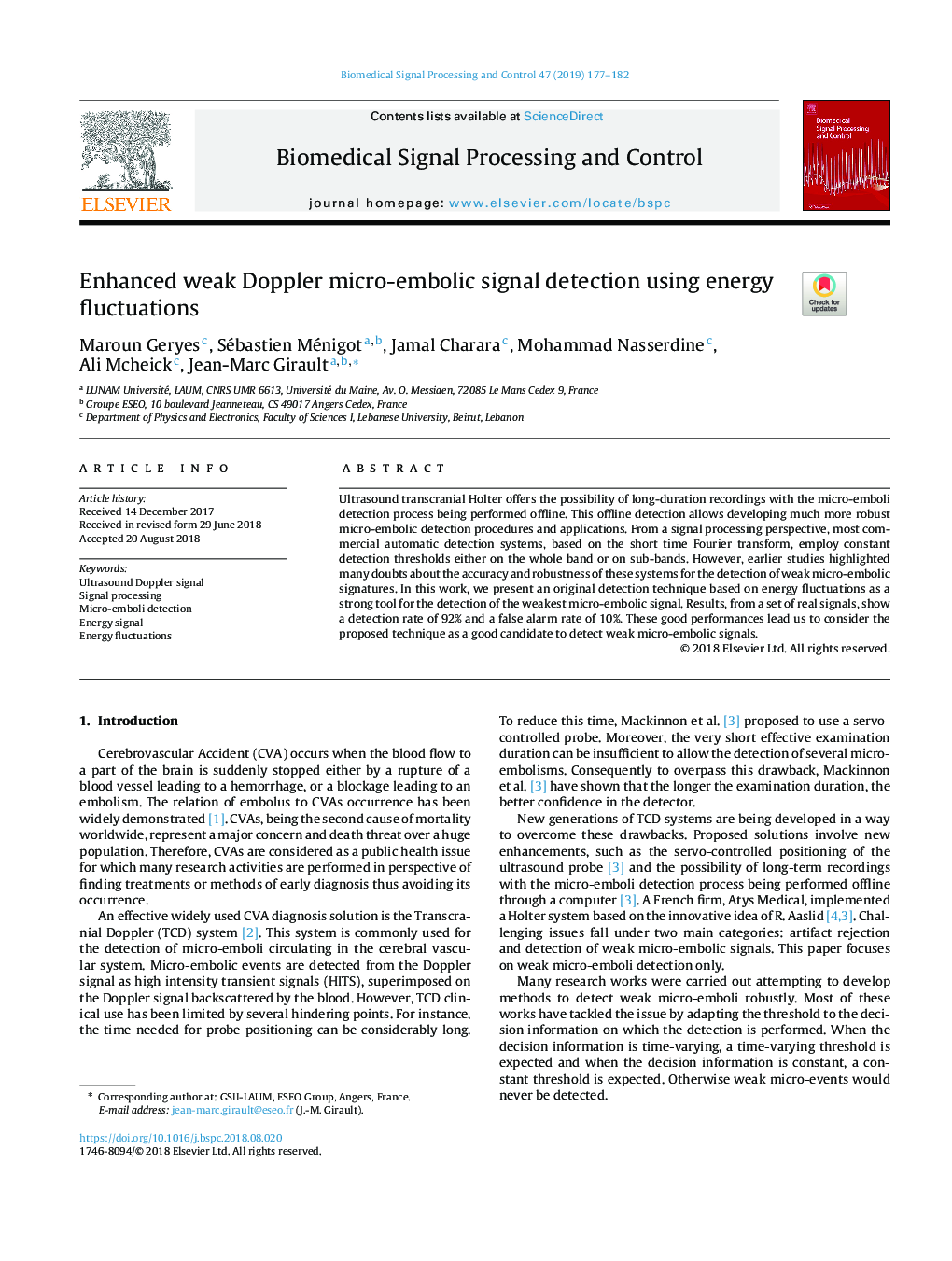| Article ID | Journal | Published Year | Pages | File Type |
|---|---|---|---|---|
| 10127181 | Biomedical Signal Processing and Control | 2019 | 6 Pages |
Abstract
Ultrasound transcranial Holter offers the possibility of long-duration recordings with the micro-emboli detection process being performed offline. This offline detection allows developing much more robust micro-embolic detection procedures and applications. From a signal processing perspective, most commercial automatic detection systems, based on the short time Fourier transform, employ constant detection thresholds either on the whole band or on sub-bands. However, earlier studies highlighted many doubts about the accuracy and robustness of these systems for the detection of weak micro-embolic signatures. In this work, we present an original detection technique based on energy fluctuations as a strong tool for the detection of the weakest micro-embolic signal. Results, from a set of real signals, show a detection rate of 92% and a false alarm rate of 10%. These good performances lead us to consider the proposed technique as a good candidate to detect weak micro-embolic signals.
Keywords
Related Topics
Physical Sciences and Engineering
Computer Science
Signal Processing
Authors
Maroun Geryes, Sébastien Ménigot, Jamal Charara, Mohammad Nasserdine, Ali Mcheick, Jean-Marc Girault,
